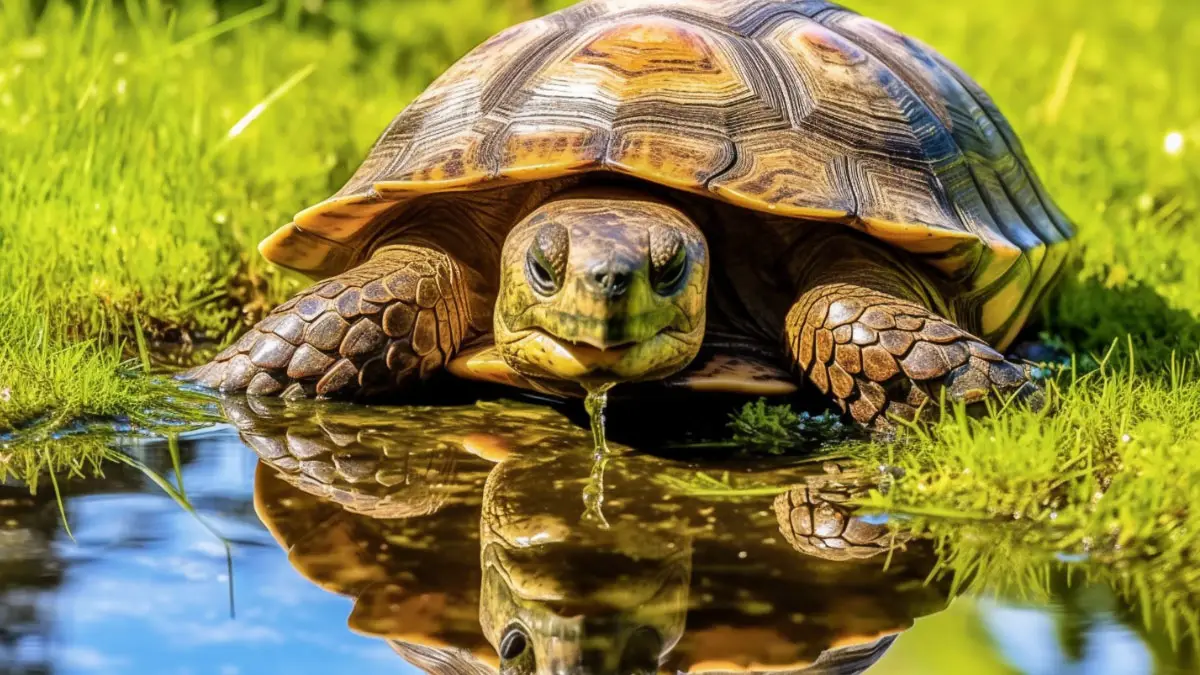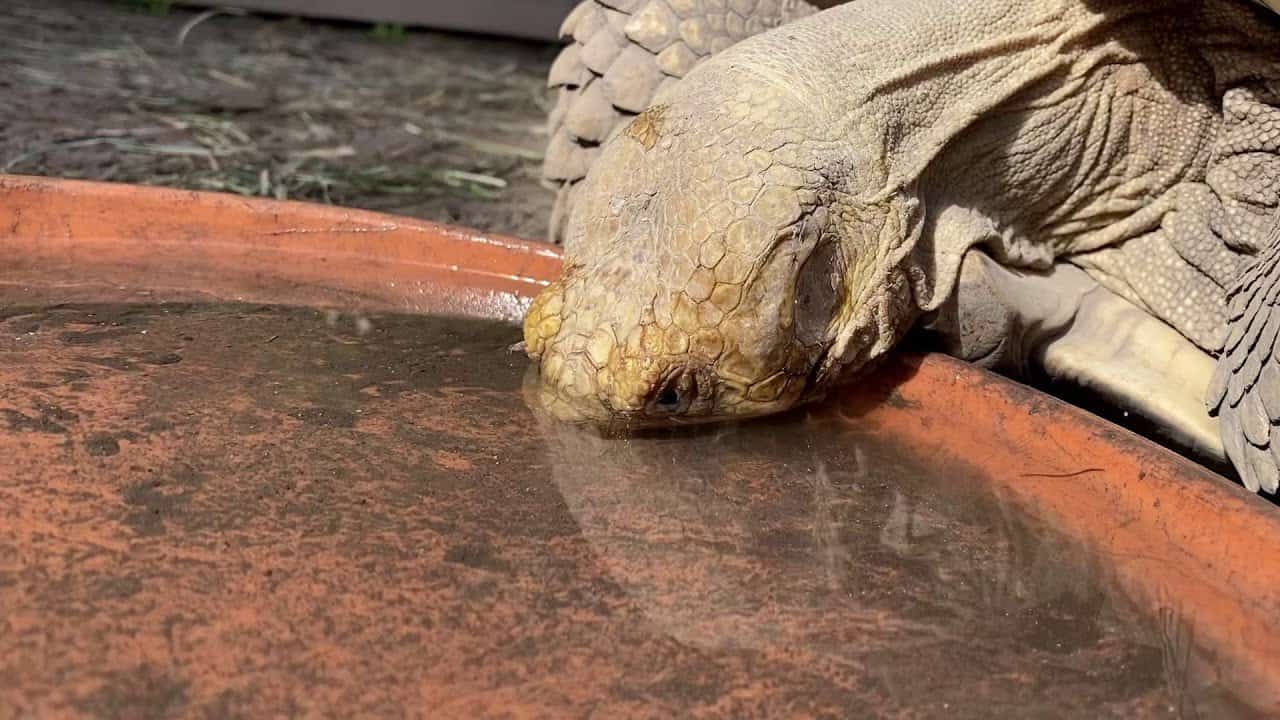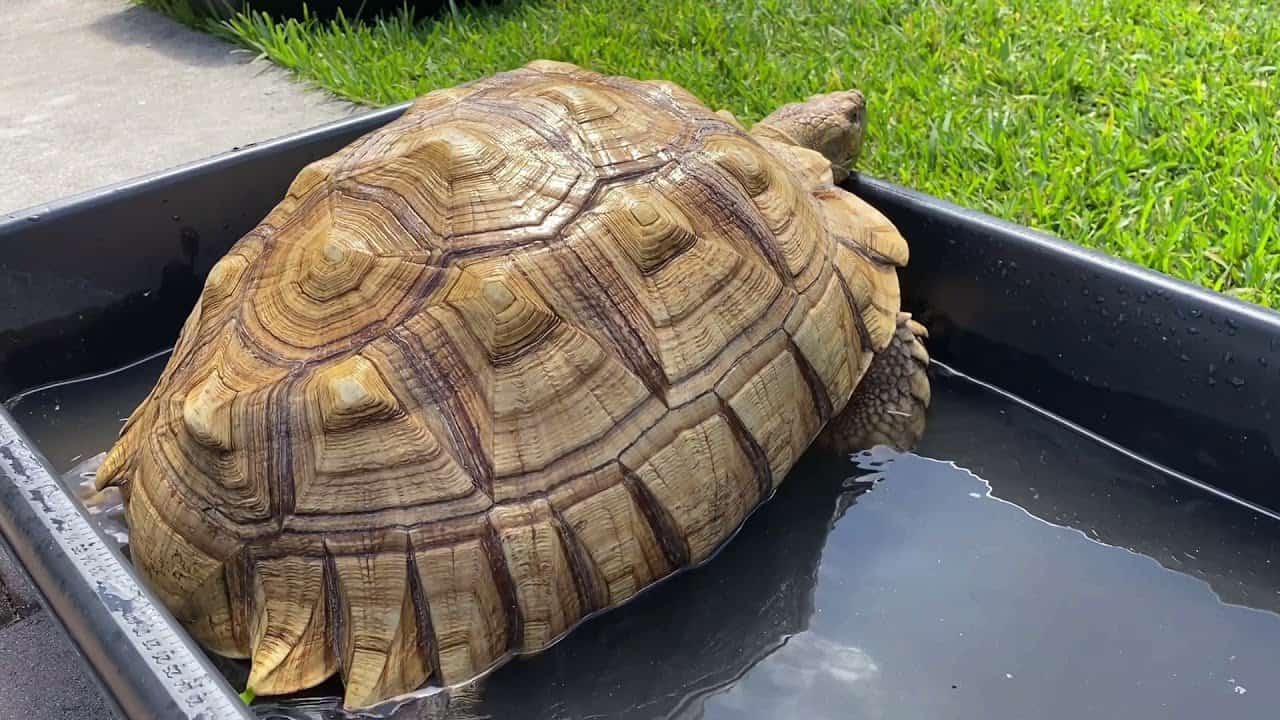Does a tortoise need water? Yes, tortoises need water for hydration and to facilitate various bodily functions, although they may not require swimming water like aquatic turtles.
The Surprising Truth: Does Your Tortoise Really Need Water?
Water is an essential element for all living creatures, and tortoises are no exception. While it is true that tortoises have evolved to survive in arid environments and can go for long periods without drinking water, this does not mean that they do not need it. In fact, water is crucial for their overall health and well-being.
Hydration is vital for tortoises as it helps regulate their body temperature, aids in digestion and nutrient absorption, and keeps their organs functioning properly. Without enough water, tortoises can become dehydrated, which can lead to serious health issues and even death. Therefore, providing access to clean and fresh water is essential for the proper care of tortoises.
The Myth of Waterless Tortoises: Debunking Common Misconceptions
There is a common misconception that tortoises do not need water because they can survive without it for long periods. While it is true that tortoises have evolved to conserve water and can tolerate dehydration better than many other animals, this does not mean that they do not need water at all.
Tortoises may be able to obtain some moisture from the food they eat, such as succulent plants and fruits, but this is often not enough to meet their hydration needs. They still require access to fresh water to stay properly hydrated. Depriving a tortoise of water can lead to dehydration, which can have serious consequences for their health.
Understanding the Natural Habitat of Tortoises: Water and Humidity
To understand why tortoises need water, it is important to consider their natural habitat. Tortoises are found in a variety of environments, from deserts to grasslands to forests. While the specific conditions may vary depending on the species, most tortoises require access to water and humidity in their natural environment.
In their natural habitat, tortoises often encounter water sources such as rivers, ponds, and even rainwater puddles. They may also seek out areas with higher humidity, such as burrows or shaded areas. These water sources and humidity levels are essential for tortoises to survive and thrive.
The Role of Water in Tortoise Nutrition and Digestion
Water plays a crucial role in the nutrition and digestion of tortoises. It aids in the breakdown of food, allowing for better nutrient absorption. Without enough water, tortoises may struggle to digest their food properly, leading to digestive issues and nutrient deficiencies.
Additionally, water helps keep the digestive system functioning smoothly. It helps prevent constipation and allows for the elimination of waste products. Without enough water, tortoises may experience digestive problems, which can have a negative impact on their overall health.
Hydration and Health: The Link Between Water and Tortoise Well-being
Proper hydration is closely linked to the overall health and well-being of tortoises. When a tortoise is well-hydrated, its organs can function properly, its body temperature can be regulated effectively, and its immune system can function optimally.
On the other hand, dehydration can have serious consequences for a tortoise’s health. It can lead to lethargy, loss of appetite, kidney problems, and even death if left untreated. Therefore, ensuring that your tortoise has access to clean and fresh water is essential for maintaining its health and well-being.
Common Water Sources for Tortoises: Tap Water, Bottled Water, and More
When it comes to providing water for your tortoise, there are several options to consider. Tap water is a common choice for many tortoise owners as it is readily available and affordable. However, it is important to note that tap water may contain chemicals such as chlorine or fluoride that can be harmful to tortoises.
Bottled water is another option, but it can be expensive and may not always be practical, especially for larger tortoises that require a significant amount of water. Some tortoise owners choose to use filtered or distilled water to ensure that it is free from impurities.
Another option is to collect rainwater or use water from a natural source such as a pond or stream. This can provide a more natural and potentially healthier water source for your tortoise. However, it is important to ensure that the water is clean and free from contaminants.
Water Quality and Safety: Tips for Providing Clean and Safe Water for Your Tortoise
Regardless of the water source you choose, it is important to ensure that the water is clean and safe for your tortoise. Here are some tips to help you provide clean and safe water for your tortoise:
1. Change the water regularly: Tortoises can be messy drinkers, and their water can quickly become dirty. It is important to change the water at least once a day to prevent the buildup of bacteria or other contaminants.
2. Use a shallow dish: Tortoises are not strong swimmers, and deep water dishes can pose a drowning risk. Use a shallow dish that allows your tortoise to easily access the water without the risk of drowning.
3. Clean the water dish regularly: Regularly clean the water dish with hot water and mild soap to remove any bacteria or algae buildup. Rinse thoroughly before refilling with fresh water.
4. Avoid using chemicals: Avoid using any chemicals or cleaning agents in or around your tortoise’s water dish as they can be harmful if ingested.
Watering Techniques: How Often and How Much Water Does Your Tortoise Need?
The frequency and amount of water your tortoise needs will depend on several factors, including its size, species, activity level, and environmental conditions. As a general guideline, tortoises should have access to fresh water at all times.
It is important to monitor your tortoise’s water intake and adjust accordingly. If you notice that your tortoise is not drinking enough water or is showing signs of dehydration, you may need to offer water more frequently or consider other hydration methods such as soaking.
Dealing with Dehydration: Signs and Symptoms to Look Out For
Dehydration can have serious consequences for tortoises, so it is important to be able to recognize the signs and symptoms. Some common signs of dehydration in tortoises include:
– Sunken eyes
– Dry or sticky mouth
– Lethargy or lack of energy
– Loss of appetite
– Dry or flaky skin
– Dark or concentrated urine
If you suspect that your tortoise is dehydrated, it is important to take immediate action. Offer fresh water and monitor its intake. If the symptoms persist or worsen, it is best to consult a veterinarian for further guidance.
Overhydration and Water-Related Health Issues in Tortoises
While dehydration is a common concern for tortoises, overhydration can also be a problem. Overhydration occurs when a tortoise consumes too much water, leading to an imbalance of electrolytes and potentially causing health issues.
Some common water-related health issues in tortoises include shell rot, respiratory infections, and kidney problems. These conditions can be caused by excessive moisture or poor water quality. It is important to provide a balance of hydration without overdoing it.
The Bottom Line on Water and Tortoise Care
In conclusion, water is essential for the health and well-being of tortoises. While they have evolved to survive in arid environments, they still require access to fresh water for hydration, digestion, and overall health.
It is important to provide clean and safe water for your tortoise, and to monitor their water intake to ensure they are properly hydrated. Regularly clean the water dish and offer fresh water daily. If you notice any signs of dehydration or overhydration, take immediate action and consult a veterinarian if necessary.
By understanding the importance of water for tortoises and providing proper water care, you can help ensure that your tortoise remains healthy and happy for years to come.



